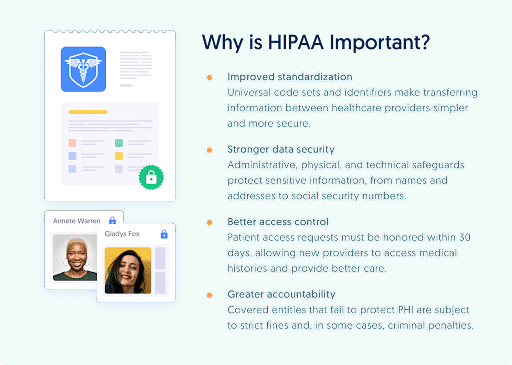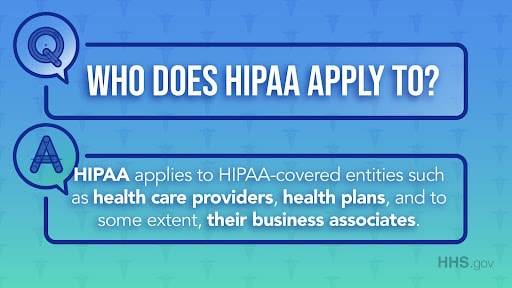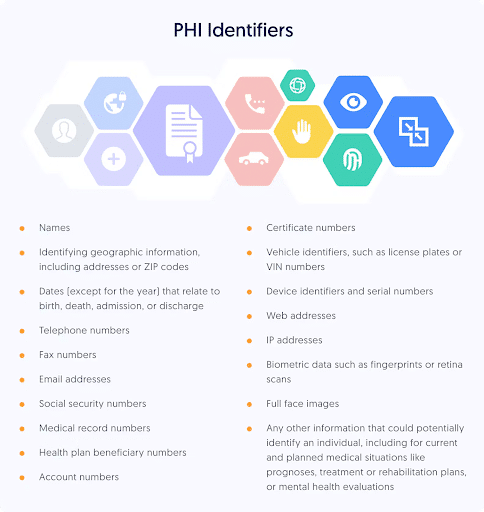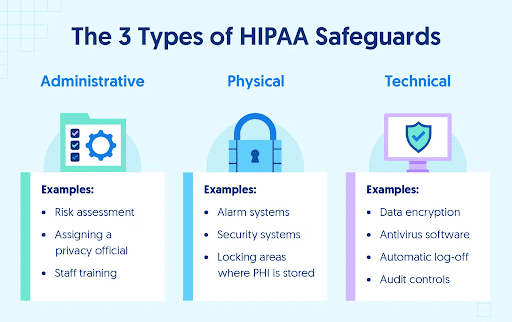

Healthcare information is a golden nugget for malicious actors. The black market pays a high price for confidential patient data, which can be used for extortion, identity theft, and even insurance fraud.
There were 284 U.S. healthcare data breaches in the first quarter of 2023, with over 19 million records breached in May alone. The reality is that there is a patient behind every statistic who deserves confidentiality and privacy. Without this right, patients lose trust in the healthcare system they rely on, so regulations like HIPAA are critical for patient care and data protection.
To better understand the importance of HIPAA compliance and its impact on safeguarding sensitive health information, let’s delve into what HIPAA entails and how it helps maintain patient data’s integrity and security.
HIPAA is the Health Insurance Portability and Accountability Act . It is a set of processes organizations in the healthcare industry must follow to prove that they take action to secure patient information (also called ‘protected health information’ or ‘PHI’ ).
The HIPAA compliance framework outlines what you must do to meet these regulations. The goal is to control access to sensitive patient data and ensure the healthcare industry and its employees maintain confidentiality and data privacy best practices.

This rule shows you how to protect PHI and patient confidentiality by appointing a Privacy Officer, creating privacy notices, and giving patients the control to access their health information.
The second Rule, Security, safeguards electronic PHI from unauthorized access, theft, and cyberattacks. It involves data security measures like encryption, data backup, and access control.
This rule helps you get back on track in the event of a data breach when someone has gained unauthorized access to PHI. Under the Breach Notification Rule, you must inform all affected parties and take action to prevent data loss .
HIPAA is relevant for any business in the healthcare industry, such as dentists, doctors, hospitals, health insurance providers, and research institutions.
HIPAA extends to:

HIPAA protects everything classified as ‘health information,’ including electronic, written, and spoken data. It includes PHI that a healthcare provider has created, received, stored, or transmitted in the past, present, or future.
There’s no official list of PHI data because it’s difficult to define exactly what ‘health information’ is, but generally, HIPAA covers two types of information:
A HIPAA compliance checklist is a document outlining the clear steps your organization must take to meet the act’s requirements.
The checklist will help you:
Most importantly, using a HIPAA compliance checklist helps prevent a HIPAA violation.
Download your free HIPAA Compliance Checklist
HIPAA violations occur when you don’t meet the compliance standards. Common causes could be:
If you fail to adhere to HIPAA, you could face fines of up to $50,000 for each violation, receive criminal penalties, or even lose your patients’ trust.
Here are three crucial things to know about HIPAA violations:
A HIPAA compliance checklist aims to ensure you understand which regulations apply to your business, what data is at risk, and what you should do to meet compliance obligations.
Follow these seven steps and use the free downloadable checklist to achieve HIPAA compliance:
First, you can determine what data falls under HIPAA by identifying the PHI your business stores, transmits, creates, and receives. PHI doesn’t include all data your organization processes, so you must know what data must be protected under HIPAA, who has access to it, and how it is collected. Eighteen identifiers will help you determine which data is to be protected.

Remember that there are three HIPAA Rules: Privacy, Security, and Data Breach Notification. Each requires different policies and safeguards, even though they’re closely related. By understanding the Rules, you can identify which ones apply to your organization and develop a compliance implementation and management plan .
Ideally, you should appoint someone in your organization with an IT background as the HIPAA Officer, whose job is to document and maintain security policies, like risk assessments and audits. Of course, they’ll need to be highly trained and even certified in HIPAA compliance to delegate accountability and take action if a violation occurs.
Conducting a risk analysis helps you identify security vulnerabilities and areas where you fail to comply with HIPAA. You can see where your policies fall short and develop a plan to mitigate risk. Use the NIST HIPAA Security Toolkit Application to help you split your analysis between the three Rules and identify any training or new policies required to cover all bases.
To meet the HIPAA Security Rule, you must ensure that PHI and ePHI are stored securely. There are a few ways to do this based on the type of data:

A risk management and remediation strategy is like a contingency plan in case you suffer a data breach or if someone violates HIPAA. It should outline what might happen and delegate tasks to the relevant employees. For example, you should submit a report to the Secretary of Health and Human Services within the deadline, conduct an internal investigation, and notify all affected parties.
You can only audit HIPAA compliance by keeping extensive documentation. Documenting everything (including policy changes and training sessions) helps you monitor your progress and shortcomings on the journey to meeting HIPAA regulations. Some audits will also require documentation; you’ll have to produce it if you suffer a breach, so it’s good to have it ready.
It’s best to communicate all HIPAA policies to every employee, which brings us to the eighth tip: implement employee HIPAA training .
The HIPAA Officer should be on hand to create internal resources and best practices, and answer any questions employees may have. You should document this training and include short top-up sessions in your organization’s calendar.
HIPAA is continuously changing, so it’s vital that your business stays up-to-date and feeds new information to all your employees. CybeReady’s training platform helps you meet and maintain HIPAA compliance requirements with engaging training modules that equip your employees with the skills they need to recognize, understand, and implement data privacy and security best practices.
For more information about how you can train your team to achieve HIPAA compliance, request a demo today.